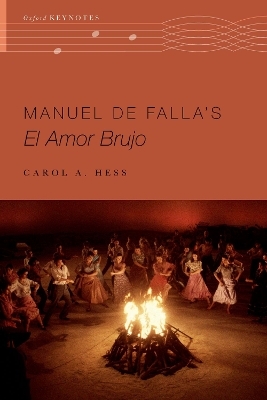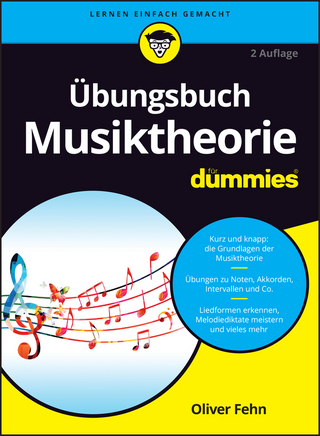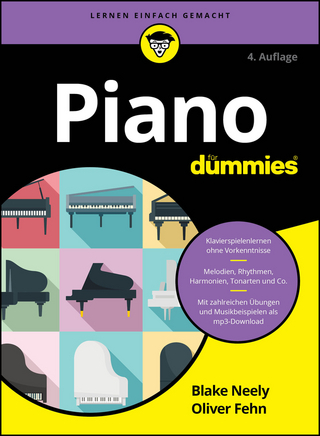
Manuel de Falla's El amor brujo
Seiten
2025
Oxford University Press Inc (Verlag)
978-0-19-762283-4 (ISBN)
Oxford University Press Inc (Verlag)
978-0-19-762283-4 (ISBN)
- Noch nicht erschienen (ca. Mai 2025)
- Portofrei ab CHF 40
- Auch auf Rechnung
- Artikel merken
Since its 1915 premiere, artists and arrangers ranging from the classical pianist Artur Rubinstein to pop luminaries such a Fred Waring and Spike Lee have found El amor brujo attractive. In Manuel de Falla's El amor brujo, author Carol A. Hess explores the ways in which music, class, and race are intertwined in the unusually rich history of this piece.
El amor brujo (trans. "Love, the Magician") is a theater work by the Spanish classical composer Manuel de Falla. It showcases flamenco, the music of the Gitanos who traditionally form Spain's underclass. When it premiered in Spain in 1915, it proved controversial: some Spanish critics applauded Falla for celebrating the music of a marginalized culture while others attacked his mixing of classical and popular idioms.
Since then, El amor brujo has intrigued arrangers and artists. It has been repeatedly reshaped, rearranged, and repackaged, either by Falla himself or by artists ranging from the concert pianist Artur Rubinstein to the super-showman Liberace or to various jazz and pop arrangers. El amor brujo has also figured in soundtracks, whether frothy movie musicals from the 1940s, somber accounts of recent Spanish history, or films on anti-Black racism, including one by Spike Lee. In Manuel de Falla's El amor brujo, author Carol A. Hess explores the ways in which music, class, and race are intertwined in this composition's unusually rich history.
El amor brujo (trans. "Love, the Magician") is a theater work by the Spanish classical composer Manuel de Falla. It showcases flamenco, the music of the Gitanos who traditionally form Spain's underclass. When it premiered in Spain in 1915, it proved controversial: some Spanish critics applauded Falla for celebrating the music of a marginalized culture while others attacked his mixing of classical and popular idioms.
Since then, El amor brujo has intrigued arrangers and artists. It has been repeatedly reshaped, rearranged, and repackaged, either by Falla himself or by artists ranging from the concert pianist Artur Rubinstein to the super-showman Liberace or to various jazz and pop arrangers. El amor brujo has also figured in soundtracks, whether frothy movie musicals from the 1940s, somber accounts of recent Spanish history, or films on anti-Black racism, including one by Spike Lee. In Manuel de Falla's El amor brujo, author Carol A. Hess explores the ways in which music, class, and race are intertwined in this composition's unusually rich history.
Carol A. Hess teaches at the University of California, Davis, where she is a Distinguished Professor of Music. She has received numerous awards for her research on music of the Spanish- and Portuguese-speaking world. A Fulbright lecturer, she has taught in Spain, Chile, and Argentina. Her most recent book, Aaron Copland in Latin America: Music and Cultural Politics, appeared in early 2023.
| Erscheint lt. Verlag | 7.5.2025 |
|---|---|
| Reihe/Serie | Oxford Keynotes |
| Verlagsort | New York |
| Sprache | englisch |
| Maße | 140 x 210 mm |
| Gewicht | 3 g |
| Themenwelt | Kunst / Musik / Theater ► Musik |
| Kunst / Musik / Theater ► Theater / Ballett | |
| ISBN-10 | 0-19-762283-6 / 0197622836 |
| ISBN-13 | 978-0-19-762283-4 / 9780197622834 |
| Zustand | Neuware |
| Haben Sie eine Frage zum Produkt? |
Mehr entdecken
aus dem Bereich
aus dem Bereich


